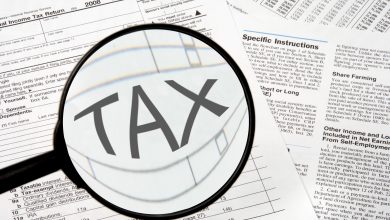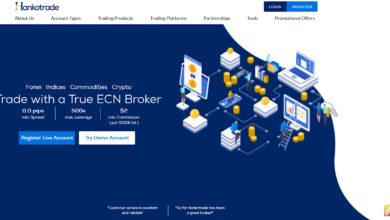Credit Card Charges That You Must Be Aware Of

Credit cards of Kotak credit card variant i.e., Kotak Royale Signature credit card or HDFC credit card variant i.e., HDFC Millennia credit card and other credit card variants are crucial and convenient instruments, which everyone considers having. It not just allows you to pay but even earns offers, rewards and cashback on most of your expenses. Nonetheless, every card comes with specific charges, which every owner must know about. If you are making repayment of the outstanding due in full and periodically, there’s nothing much for you to fret about. However, there are a few crucial charges you must not overlook. Let’s take a view.
Annualised percentage interest rate –
A credit card is a kind of short-term loan offered without any security or collateral. The lenders consider the card users to pay the outstanding credit card by the due date. Lenders endow an interest-free period, and it varies with every card. For instance, if the outstanding due on the credit card is Rs 20,000 for the month of December and the interest-free period is 50 days. So, you are anticipated to repay by 19th February. Suppose you pay Rs 10,000 by the due date, then you would be levied an interest constituent on Rs 10,000.
Note that, credit cards come with a higher rate of interest than any other kind of credit. Your lender may charge somewhere from 21 per cent to 55 per cent per annum based on the credit card type you availed.
Foreign currency markup charge –
You can use credit cards internationally to make foreign transactions. However, the lender levies a foreign currency markup charge on all foreign transactions which involves a surcharge as well as GST. Your foreign payment gets converted into an Indian denomination and the markup charge is levied along with GST and surcharge.
Note that, foreign currency charges can range anywhere from 0.99 to 3.5 per cent of the transaction.
Also Check: Kotak Royale Signature Credit Card
Cash advance charge –
Lenders permit a portion of your credit card limit for withdrawal from ATMs. It might sound attractive; however, it does have an additional cash advance charge. The charge is incurred to bring about caution in withdrawing cash from cards. It is prudent to use it just during exigencies.
Note that, cash advance charges can range anywhere between 2.5 per cent and 3 per cent per withdrawal. Remember that there’s no interest-free period on using the cash advance feature and the cash advance charge is levied straight after withdrawal.
Late payment charge –
When you are unable to pay your outstanding credit card due within the interest-free period, then you would be levied late charges based on the amount you owe and the delay in the number of days. It is levied in the billing cycle. For instance, you made payment of your April month outstanding credit card due of Rs 5,000 on 15th June. Then, you would be levied a late payment charge of Rs 500 on the May month card statement.
Annual maintenance charge –
It is an annual fee collected by lenders for providing distinct reward programs, benefits, and cashback. The joining, as well as annual charges, are higher for the premium category credit cards. Annual charges can range anywhere between nil and over a lakh.
Note that, the IDFC credit card is a lifetime free card, and many give a waiver on annual charges on spending a specific threshold limit.
Over-limit charge –
Specific lenders endow the provision of spending over the offered credit limit. A few issuers may not permit this. In both scenarios, the over-limit charge is high.
Note that, keeping your CUR (credit utilisation ratio) less than 30 per cent can enhance your score considerably. This means you must eye on using just up to 30 per cent of the credit card limit.
Other fees –
GST –
All the credit card charges are added with 18 per cent GST.
Fuel surcharge –
When using your card for fuel transactions, there would be an add-on surcharge that may range anywhere between 1 per cent and 3 per cent on the amount transacted. Fuel cards endow waiver upon fuel surcharge. However, this does not infer you can save on the fuel expenses, you only save on the additional fee that you may pay using your credit card. Most lenders offer a 1 per cent waiver on the fuel surcharge.
Redemption charge –
This is a catch. A few issuers may levy a minimum charge for rewards you redeem as cash and vouchers.
Ending note –
While using a credit card may be viewed as convenient, you must ensure to understand the actual expense incurred on using the card. There are zero hidden fees on every card. The lenders are transparent about the charges they levy on your credit card. It is the total responsibility of a consumer to read as well as understand the document before opting for a card and at the time of swiping it. However, ensure to use your credit card in a wise manner for a worry-free transaction and life.
Frequently asked questions –
What are lifetime credit cards?
Lifetime free cards do not levy any joining charge or annual charge until you use the credit card. However, the interest rate, late payment charge and other fees are applicable.
What’s a credit card’s interest-free period?
You can make payment of your credit card outstanding due up to a specific period without making payment of any interest constituent. It is the grace period added from the statement generation date ranging anywhere from 18 to 50 days.
How can you select a prudent credit card?
Review your transaction pattern, lifestyle, and your monthly income. You may select a credit card that provides the highest rewards on spending like travel, grocery, entertainment, and lifestyle.
Are travel cards costly?
Not really. Travel cards are available for each income group. In case you are a constant user of a specific travel service, you may consider using a co-branded card.
Do fees even form a part of credit card outstanding?
Yes. All the penalties, interest, and charges on your credit card are applicable and form a part of your outstanding bill as and when levied.
For more information visit our website.






